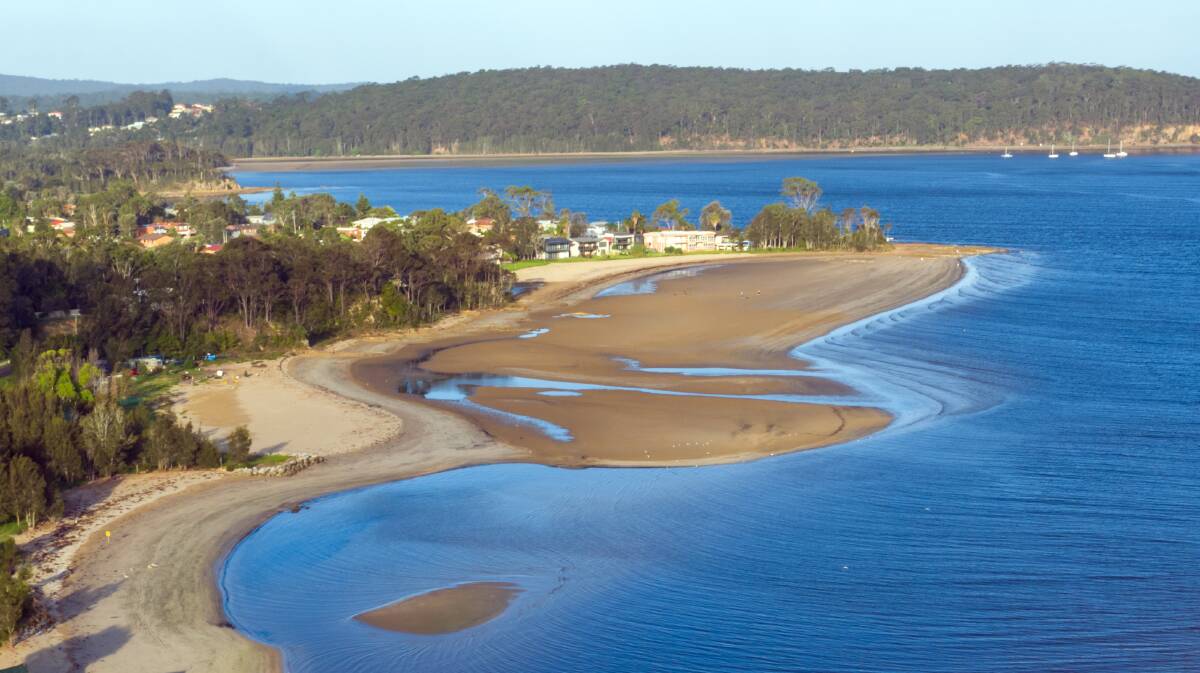Potential changes to the management plan for Wharf Road in North Batemans Bay may prevent automatic property loss for landholders.
Subscribe now for unlimited access.
$0/
(min cost $0)
or signup to continue reading
Eurobodalla Shire mayor Liz Innes wrote to NSW Planning Minister Anthony Roberts, requesting his view on removing all references to submerged blocks in the Wharf Road Coastal Zone Management Plan (CZMP).
The request followed community concerns about the automatic forfeiture of submerged land in the Wharf Road coastal zone.
Under the existing plan, privately held property below the mean high-water line automatically reverted to Crown ownership: the NSW Government was not required to purchase property from title holders.

Wharf Road property owner Geoff Payne said the submerged lots were Torrens title with fixed boundaries. Ownership was transferred through registration of a title instead of a deed – and could be compulsorily acquired for public purposes.
“For example, a 30-metre easement for public access at the rear of the Wharf Road titles would be a public purpose; this falls under ‘just terms’ and requires compensation,” Mr Payne said.
“Torrens Title land owners around the world have a right to protect their land from inundation. The NSW government has no power to change the Torrens Title Act, there is no provision in the Torrens Title Act to allow for the change of ownership,” Mr Payne said.
A spokeswoman for the Eurobodalla Shire Council said, while supportive of the NSW Government’s intention to purchase land above the high-water mark, the mayor’s letter sought the minister’s view on removing all reference to land below the high-water line from the plan, which could be amended to recommend purchase of privately owned land and enable the NSW Government to work through legal issues.
The NSW Office of Environment and Heritage responded to the mayor on behalf of the Minister, advising its support for any revisions to clarify the strategic intent to acquire private land.
NSW Coastal Alliance Eurobodalla region coordinator Ian Hitchcock said removing the reference to the forfeiture of submerged lands might lessen the controversy, but did not solve problems above the high-water line.
“In 2011, council developed a Local Environmental Plan (LEP) which applied environmental zoning in a manner that could only be described as E-zone mania,” Mr Hitchcock said.
Mr Hitchcock said the Coastal Alliance was not aware Wharf Road was zoned E2 at that time and the land there had no environmental attributes.
“Council decided that, because it was land affected by ‘predicted sea level rise and other coastal hazards’, they could legitimately use the environmental management zoning to prevent any future development on that land,” Mr Hitchcock said.
“The NSW Coastal Alliance, which I represent in the Eurobodalla, is appalled that any council could treat its ratepayers with such contempt.”
In response to Mr Hitchcock’s enquiries, NSW Department of Planning and Environment regional operations executive director Ian Hunter said the decision to zone Wharf Road as E2 lay with council, but was in keeping with guidance provided by the department on how environmental protection zones should be applied.
Mr Hitchcock said he was also concerned 10,000 cubic metres of sand was taken out of the estuary and spread on beaches at Surfside and Corrigans.
“Neither council or the state government has commissioned a proper sediment movement study in the Clyde estuary or northern bay,” Mr Hitchcock said.
Mr Payne said the land at Wharf Road had been eroded due the construction of public works, the Clyde River ‘training wall’, and Batemans Bay Marina.
In response to claims erosion at Wharf Road had been caused by public works, council’s director of planning and sustainability, Lindsay Usher, has previously said no expert evidence had been provided to support that allegation.
Mr Payne said the state and local governments must implement guidelines which permitted owners to protect property.
“That would be at the owners expense; unless the erosion was caused by public works … then compensation is due or the cost of protection is the authorities,” Mr Payne said.

